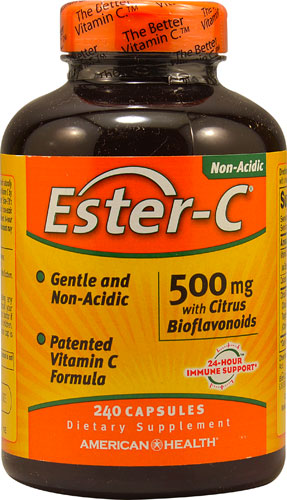Some of us are lucky to live in a climate where winter means the occasional wind breaker or hoodie at night. For the majority, however, that’s not reality. Winter can be harsh, and it’s important to take some preventative measures to maintain optimal health while we anxiously await spring’s arrival. It’s essential to eat healthy, bundle up and get plenty of rest during these ice-cold months. In addition, supplementing can be an excellent way to ensure you make it through this season unscathed.
Here are five excellent supplements to keep you at your best this winter!
Vitamin D is an essential supplement for the winter season. It’s primarily obtained via direct exposure to sunlight. However, this can become difficult during the cold, dark winter. That’s where vitamin D supplements come into play. This nutrient helps to contribute to bone strength, aids in the absorption of calcium and helps promote a positive mood. There’s often confusion regarding the “3” in vitamin D3. This simply indicates that the vitamin D is from a natural source, as opposed to the synthetic counterpart you may know as vitamin D2.*
[caption id="attachment_38951" align="aligncenter" width="650"] Vitamin D, the sunshine vitamin, is harder to get during those short winter days. Keep yourself healthy with a D supplement.[/caption]
Vitamin D, the sunshine vitamin, is harder to get during those short winter days. Keep yourself healthy with a D supplement.[/caption]
Elderberry (Sambucus nigra), commonly referred to as sambucus, is a berry that’s typically found in the warmer parts of North America and Europe. It is rumored that Hippocrates, the Greek “father of medicine,” referred to the elderberry as his “medicine chest” due to its many functions. As a matter of fact, according to the United States Department of Agriculture, the antioxidant capacity of black elderberries is superior to strawberries, cranberries and blueberries. A few teaspoons of black elderberry may help to keep you at your best until spring finally shines.*
Winter will be much more bearable with help from our friend, vitamin C. Vitamin C is a powerful antioxidant, which protects against free radical damage, chemicals and pollutants that may harm our body’s cells. Vitamin C is easy to obtain through diet. Citrus fruits, berries, kiwi, pineapple and strawberries are a few of the best sources of vitamin C. If these nutrient-rich foods aren’t part of your diet, you can supplement vitamin C in a variety of forms – from tasty chewables to convenient capsules.*
If you suffer from dry, flaky skin in cooler weather, vitamin E oil might be an excellent addition to your personal care routine. Though not your typical supplement, this oil provides a powerful dose of vitamin E that you apply topically – just as you would a body lotion. It’s often mixed with other oils (almond, apricot, avocado, sunflower, etc), which all have a plethora of benefits to promote healthy skin. On top of being an excellent moisturizer, vitamin E oil is an antioxidant, protecting our skin from free radical damage.
Zinc is an often overlooked mineral with a host of important benefits. Zinc supports proper immune function, eye health and the regulation of appetite, taste and smell. Zinc is also responsible for the production of superoxide dismutase (SOD), which plays an important role in protecting our bodies from free radical damage. Men may especially benefit from this mineral, as zinc helps to support healthy prostate tissue, sperm mobility and testosterone production.*
While we wish for warmer weather, we hope some (or all!) of these supplements can help get you through the winter. You might even find that you feel better than you did going into it!
*These statements have not been evaluated by the Food and Drug Administration. This product is not intended to diagnose, treat, cure or prevent any disease.



